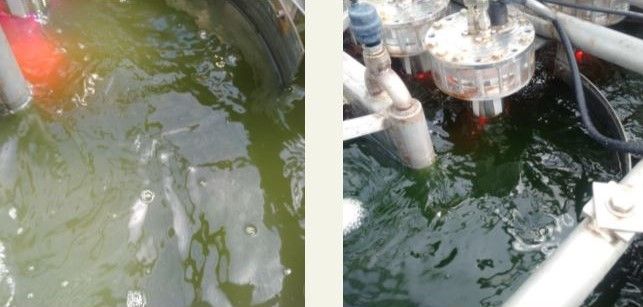This Pilot Project Uses Algae to Convert Wastewater Into Nearly Drinkable Water
Published on by Water Network Research, Official research team of The Water Network in Technology
A year-long pilot project that uses algae to convert wastewater into nearly drinkable water, is now complete at Rosebud. The algae wastewater pilot project run by Symbiotic EnviroTek Inc. was launched in February 2018.
By Monique Massiah, Strathmore Now

A photo of the microalgae used in Symbiotic EnviroTek's pilot project. Photo credit: Symbiotic EnviroTek Inc.
The project is run with the support of the Federation of Canadian Municipalities, and in collaboration with Wheatland County. Crews are now in the process of decommissioning the site of the project.
“We were able to take wastewater and bring it back to almost a drinking water quality,” said Art Deane, President and Chief Executive Officer of Symbiotic EnviroTek Inc.
How it works is that raw effluent was pumped from the in-ground sewage system at Rosebud. The solids are removed. Then it is used to grow microalgae. The biomass is harvested and separated, then processed into bio-oil for use as feedstock for bio-based aviation fuel and oilfield drilling lubricant. Clean water, that can be used for irrigation, is also one of the products.
Read the full story on Strathmore Now
Media
Taxonomy
- Reclaimed Wastewater
- Wastewater Phycoremediation
- Industrial Wastewater Treatment
- Decentralized Wastewater
- Cooling Boiler & Wastewater
- Algaecides
- Wastewater Treatment
- Wastewater Collection
- Algae
- Wastewater Treatment Plant Design